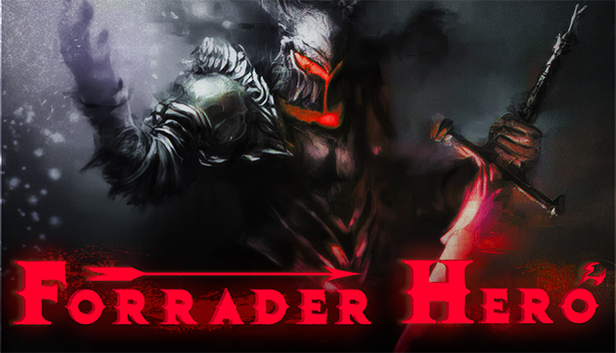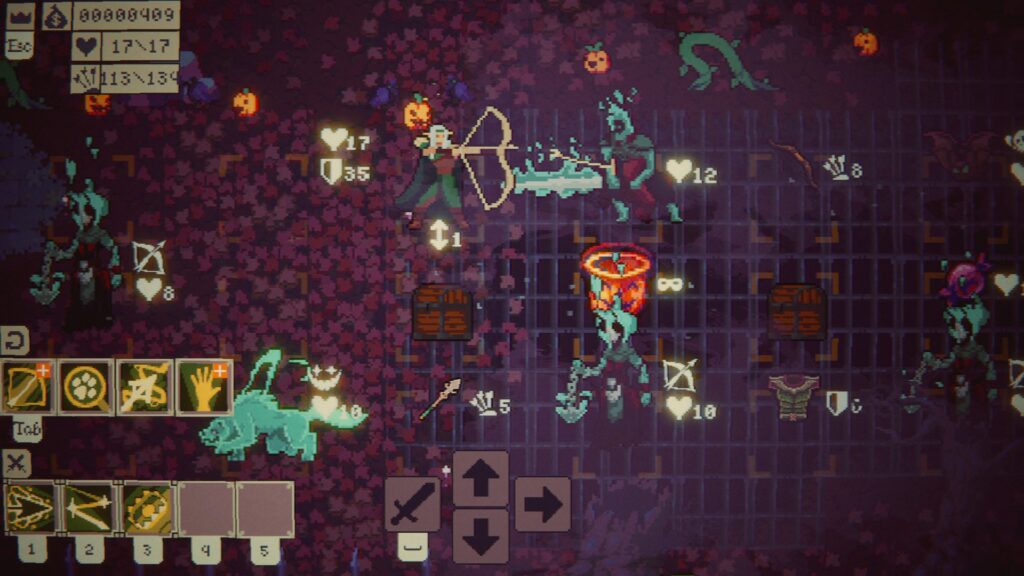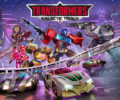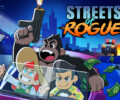
Forrader Hero – Preview
Indie games are renowned for trying new and interesting things with their gameplay. Smaller titles often feature simple mechanics, making them part of their charm. A good example of this could be Vampire Survivors, which promptly took the hearts and minds of gamers by storm after its Early Access release. Following a similar philosophy, Forrader Hero is a unique game where players may only move forward while facing whatever is in their path. Here is what it has to offer.
Featuring no real story to speak of, Forrader Hero’s plot sees a group of heroes attempting to save their souls by facing hordes of demons and other enemies in a land known as the Forgotten Proto.World. Besides this, the only other narration the game offers is a little blurb about each character before the start of the game, although these don’t provide much information or background either.
The game’s graphics are made up of nicely detailed pixel art, with most of the attention going to the backgrounds. Surprisingly enough for a game of its kind, Forrader Hero features a large variety of enemies, with each of the three available stages featuring a unique set of them. Curiously though, this doesn’t seem to apply to the bosses, which are instead shared between all three.
Similarly to its graphics, Forrader Hero’s sound design is rather competent, featuring a pretty good soundtrack and SFX. That said, the number of tracks in the game is limited, meaning they instead tend to loop over and over while in an area. This is only offset by the short length of a run, although such a solution is not particularly ideal.
As previously stated, Forrader Hero’s main gimmick is that players may only move forward and never backwards. In order to make this work, the game is segmented into individual runs, thus belonging to the roguelike genre. For each of these runs, players are able to select one of the unlocked heroes and are tasked with proceeding while vanquishing any foes in their path. While the core of the game is about only moving forward, players will also be able to move vertically in order to access cells in the same column, limited to a certain number depending on the character employed and items equipped.
While moving forward, players will also have to collect items that grant them stats or resources (if their current hero requires them for their skills) necessary to survive. These stats include health, shield, and attack, which all accumulate to decide how much damage the player will take from any given hostile interaction. In order to calculate this outcome, shield and health are added to a total damage negation value, while damage determines how many hits will be taken. The main problem with these stats is they are never properly explained in game, thus leaving the player to figure out how they work, with damage being the odd one out requiring a lot of experimentation to explain.
Besides items and enemies, each of the segments of a run will also feature a bonfire or a boss at the end, alternating each time. Bosses serve as damage/health checks that will promptly kill a player without enough stacks of either, while bonfires provide a slight increase of max health. After each of these, players will also be able to open a chest, the boss one containing a set of passive or active abilities to choose from and the bonfire one a set of healing or resource increase options.
On the last cell of each run, players will encounter a final boss flaunting a massive amount of health. This boss is what the whole run prepares the player for, being far more powerful than any other encounter in the game. It can often be frustrating when a run is instantly lost despite the time invested and resources obtained just by reaching the finale. The way the game somewhat palliates this is by keeping any damage dealt to the final boss for the following run, thus allowing players to eventually clear it. This measure is a mixed bag, since being unable to properly finish a run despite playing optimally doesn’t feel good. That said, the game is more oriented towards obtaining a good high score rather than completing a run, although optimization is only available to a certain point.
Conclusion
Forrader Hero is a unique game with interesting ideas that would be perhaps better suited for a mobile environment. While the game is competent enough, the format featuring shorter and repetitive runs (even for a roguelike) with a focus on high scores makes it a perfect fit for something to play while commuting or to kill time. The main problem with playing the game on PC is that players will often have a slew of other time killers that might leave them feeling more fulfilled or provide them with more entertainment. That said, the game is still in Early Access, meaning there is some time for it to evolve and improve.
Personal Opinon
“I don’t have much to say besides what I mentioned during the review and especially what I said in the conclusion. This is a game that I’d gladly play on my phone. It’s perfect to play in the bathroom, commuting, or whenever I have to pass some time and cannot do something that takes longer. Limiting this game to a PC format, especially with how repetitive it is even when changing characters, means it won’t get that type of life. If I have time to boot up my PC, I have time to play a different roguelike with more content and more unique runs. If I don’t have time to boot up my PC (because doing so for 30 minutes is a waste), I will instead just read or play on my phone instead.”
Forrader Hero - Preview,








No Comments